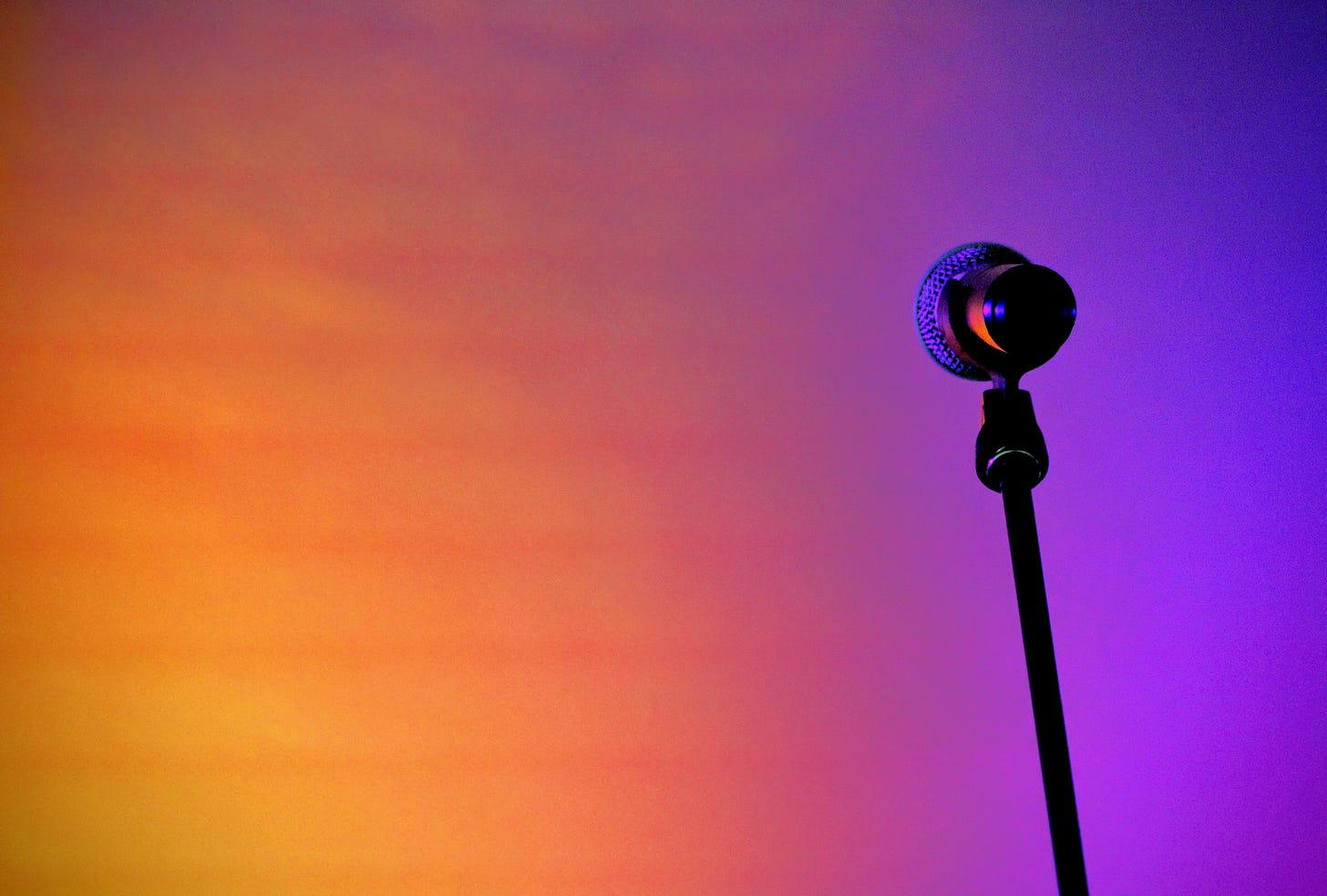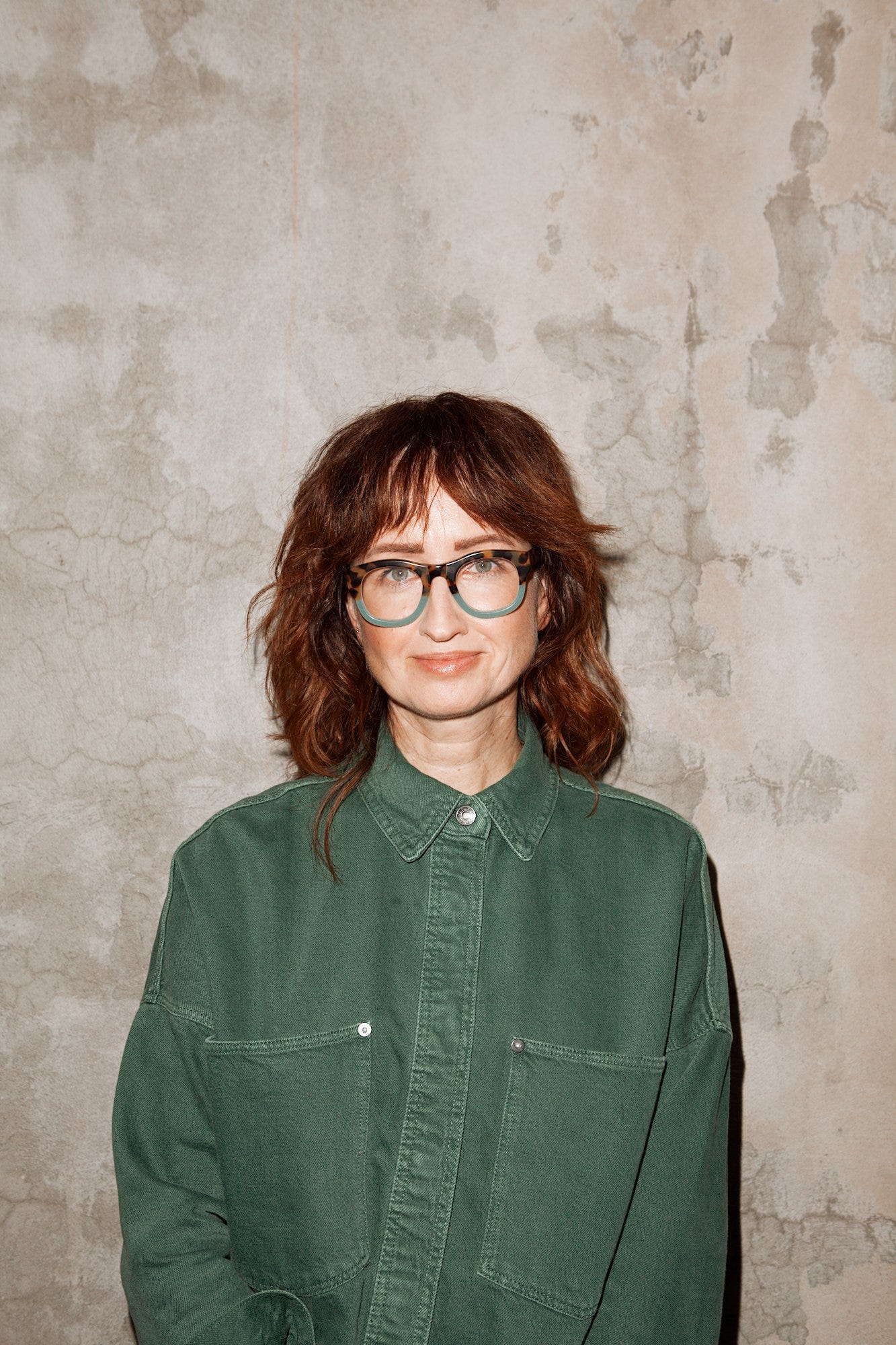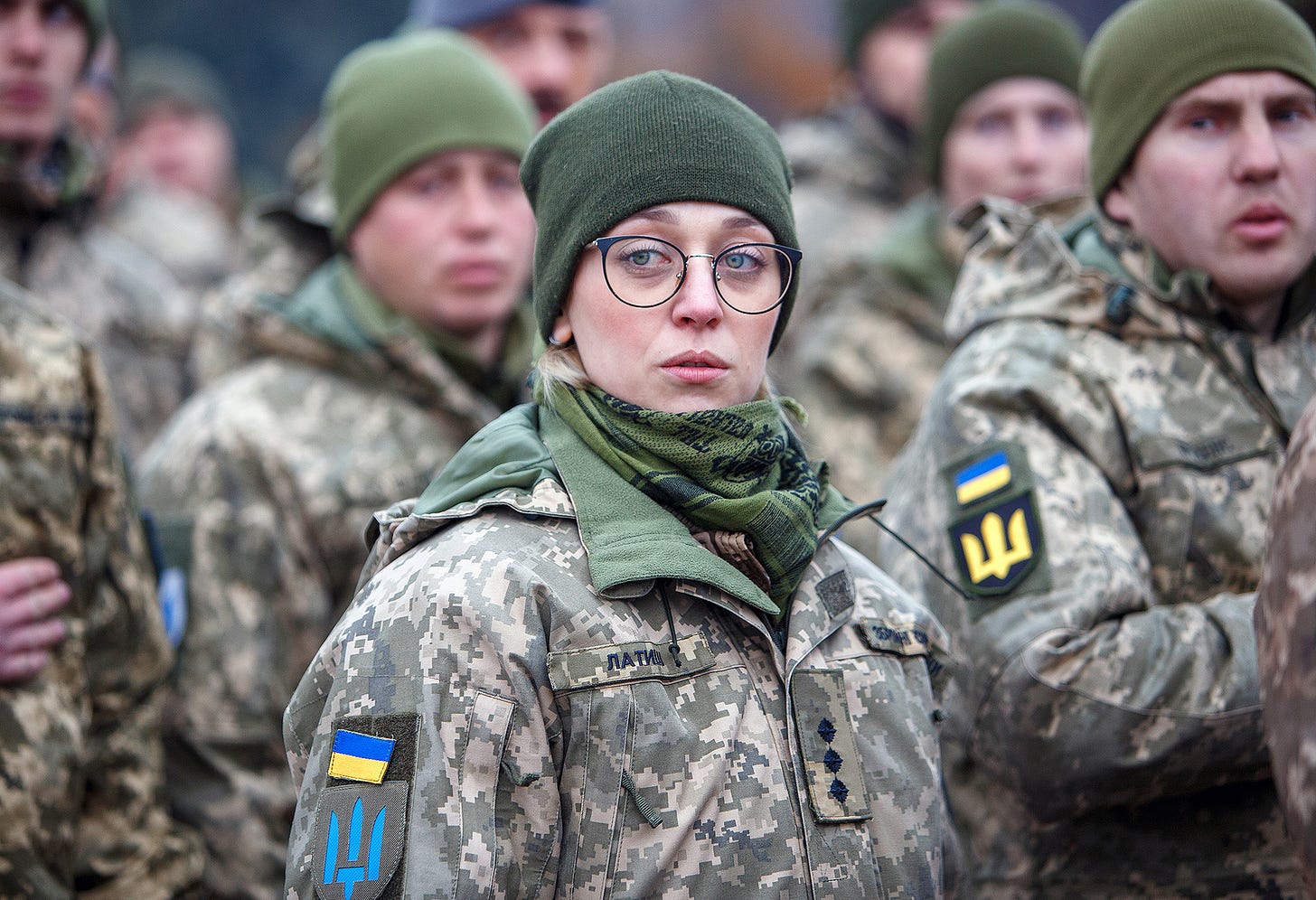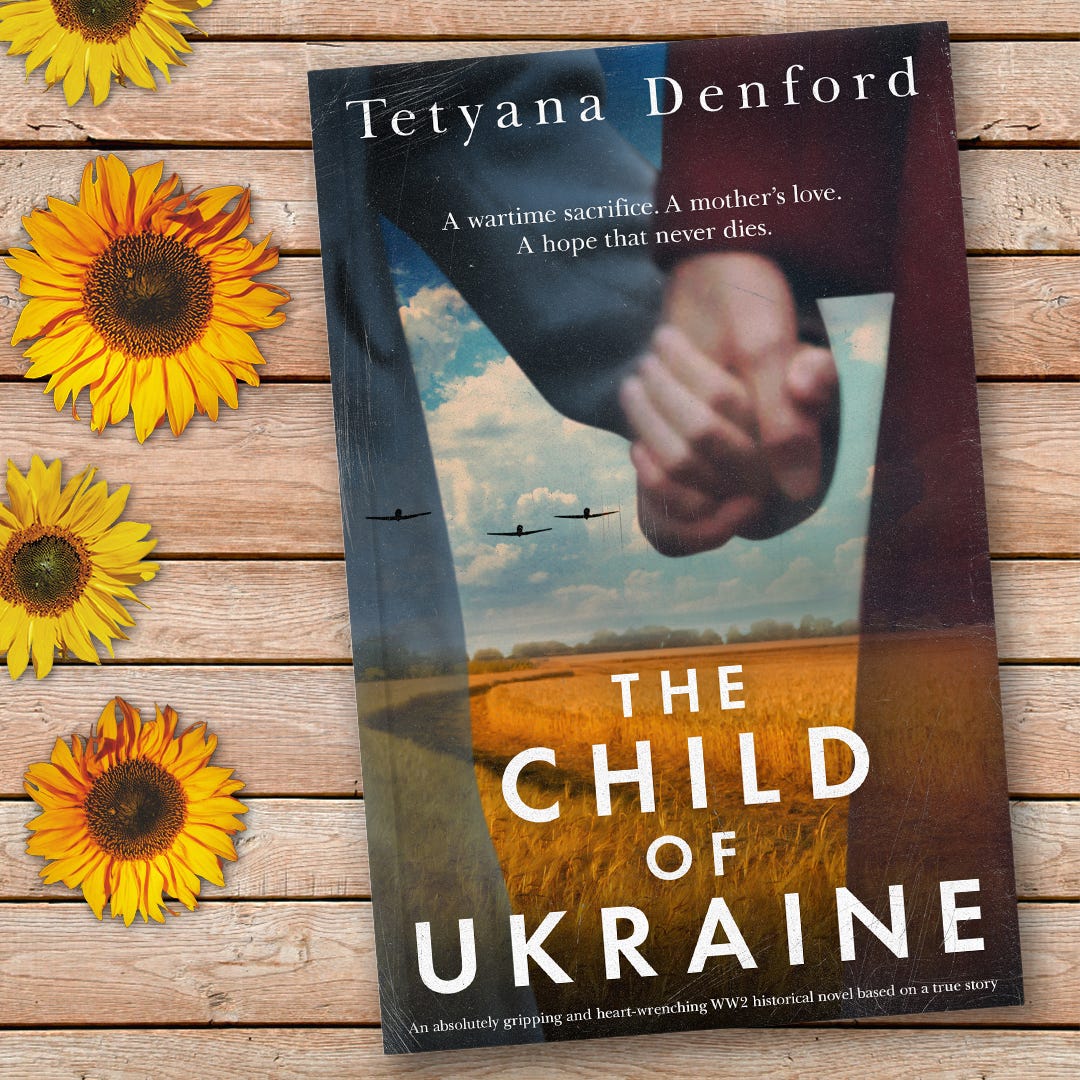A Ukrainian asks, ‘Is this mic still on?’
Ukraine has been under attack for more than 100 days – but for Ukrainians, news anxiety and compassion fatigue are the new enemy to the cause. Should we feel guilty?
Hello, and welcome to this weekly free newsletter from The Flock with Jennifer Crichton – this week with a very special guest writer. Just a reminder that you can support the work that goes into this newsletter and the writers who contribute to it, AND access all manner of extra columns, interviews, audio content and conversation, by becoming a paid subscriber.
Guilt is often my default mode.
Guilt about not working enough because I’m parenting. Guilt about working too much instead of parenting. Guilt about what I’m eating, or not eating, or wearing, or not wearing, or watching, or reading, or buying or or or…
Lately, there’s been a new thing to add to the guilt list: I’ve lost track of what’s happening in Ukraine.
In my defence, it’s hard enough to keep up with events on our own front doorstep. With the UK government setting fires all over the place, the news is challenging right now. But while we’ve been otherwise engaged with lying PMs, resigning ethics advisors and flights to Rwanda, the bombs have still been falling on Ukraine. The European leaders who visited this week brought little more than empty promises. And for those who can’t turn away, the dwindling attention to the cause is devastating.
But how do you hold people’s attention when compassion fatigue and news anxiety are combining to avert the world’s eyes? And should we feel guilty for not doing more?
Today, I’m handing the mic to American-Ukrainian writer, campaigner and journalist, Tetyana Denford to find out…
The stage is empty. The crowds have dispersed. The microphones have been turned off. That’s what happens when the lights go down on a show, and people don’t know what to do or say anymore.
Tragedies only live in our hearts for a short time before we need to turn away, change the music, look for something new to learn from. I get it. I wish I could turn away too. Many of us do.
The novelty of Ukraine is filtering down to a low hum. At least, that’s what it feels like, when you search for trending issues, when you turn on the television and want updates on where we are, over 100 days into a conflict that feels ever farther away. Thing is, Ukraine is still shouting, even if people can’t hear us. We still keep protesting, raising our banners, calling our families to make sure they’re still alive. Ukraine is still at war, families are being separated, graves are being dug, bodies are being piled high and people are starving, even while the news leads with stories of powerful politicians in suits boarding trains, making sure they are photographed showing their support for Ukraine while asking the country to ‘compromise’ to save everyone’s freedom.
Social media is fickle, and understandably, it’s hard as a human to keep track of every single news item. We are bombarded with images and copy every single second, the internet offering up billions of pieces of information to suit any narrative. It’s a paradox of choice: what do we do? How do we get accurate information?
It’s been said that this is the most recorded war in history, helped by the fact we have a Ukrainian president who looks like your next door neighbour, leading the country’s social media narrative dressed in a green T-shirt and trousers, trying to show the humanity of it all. But, is it enough? Are we doing enough to make sure that the long game being played is one that takes Ukraine out of the war chronicles and instead creates a legacy of hope and power and sovereignty? It’s hard to tell anymore.
War fades, eventually, and people do lose interest. Will people still want to buy vyshyvanka shirts and Tryzub keychains, painted eggs and blue and yellow flags of support months or years from now? Probably not. But what matters here is less the ‘souvenirs’ of support and more that we paid attention and held powerful men and women accountable for behaviour that harms marginalised people.
The momentum here should not be only about Ukraine, but maybe more about how we – the regular people – can create movements that actually change government policy about refugees seeking safety and asylum. The momentum here should be about us standing up and saying “I am an ally for humanity, not just an ally for a trending issue”. The momentum here needs to be about issues that will change the course of the world, for our children and our children’s children. But our anger and energy is currently dispersed and filtered because there are so many things that we are personally invested in: our friends, families, work struggles, social media celebrity spats, movies we want to see, pandemic fatigue… the list goes on, and on, and on.
Every day, still, through it all, most Ukrainians have a routine: not sleeping well, getting up in the morning and checking on Zelenskyy as we drink our coffee, making sure our families are still alive and safe, and investigating whether the threat of the invaders has altered significantly in the hours we tried fitfully to sleep. Not only are our days peppered with tension, we also have jobs to do and families to take care of. On top of that, our social media platforms are now platforms for our work, our art, our activism. The layers that sit on us currently seem insurmountable, but we get on with it.
And maybe the world feels that because we just ‘handle it’, because this is not ‘news’ for us (having had generations of our families live through Russian colonialism), maybe they assume that we can just keep going, that we have a limitless ability to resist and fight. And maybe that’s why there are so many memes and posters saying “Be Brave Like Ukraine”. It’s a lovely thought, and encouraging that people admire us for our persistence. But we are not limitless. We can’t keep doing this without people around us paying attention and empowering us to be creative with our efforts, to join us in creating a more sustainable narrative of hope for Ukraine.
We cannot sit in the trenches feeling like the world’s eyes are slowly turning away. So, we have no choice but use our platforms, our music, our writing, to remind people that standing with Ukraine is also a promise to stand with Yemen, Libya, Syria, Palestine, Sudan, Ethiopia, Afghanistan and more. It is a promise to pay attention to all immigrants and refugees who have only had a second of the world’s attention because they didn’t make enough noise to make a difference.
But even when we tire, the noise exists in the chorus of people who are not fighting these battles personally but who choose to bear witness. You are the ones who do not have to suffer huge losses in order to keep your lens firmly focused on the issues that will change the world.
You are the ones that we pass the microphone to. Now we ask you to use it, to call back the audience and tell them to keep paying attention.
Tetyana Denford is a Ukrainian-American author, poet and translator. Her critically acclaimed first novel, Motherland, detailing her immigrant family's escape from wartime Ukraine, was longlisted for the Reader’s Digest Self-Published Book Awards and is about to be re-released as The Child of Ukraine. She lives in New York with her husband and three children, and can be found on Instagram and on Twitter.
This post is free, so please do share, subscribe and comment as you wish!















Thanks Jen. Another timely article. Completely with you on the constant guilt (think I must have been Catholic in a precious life). Appreciate the intro to Tetyana and her insight and content